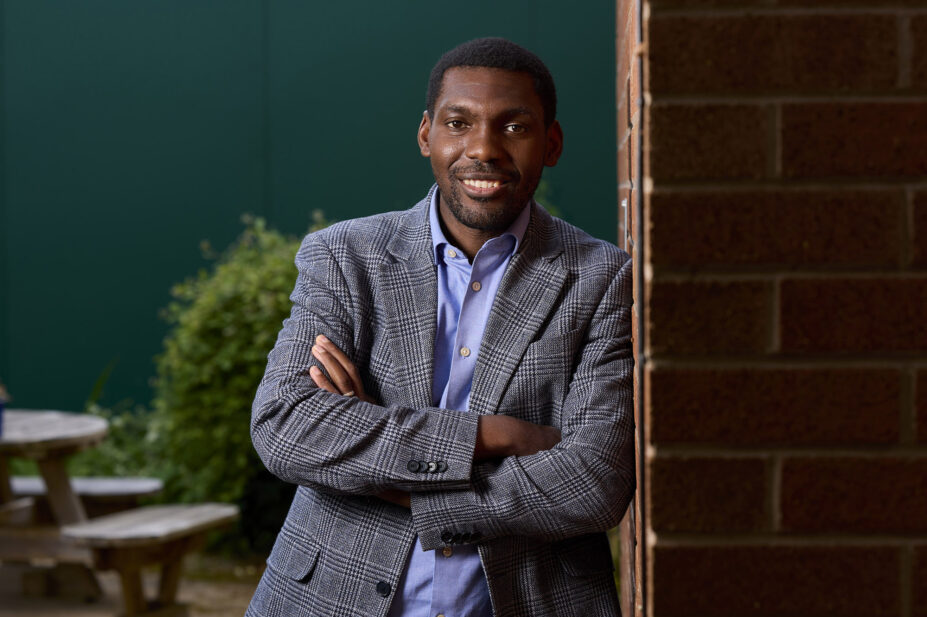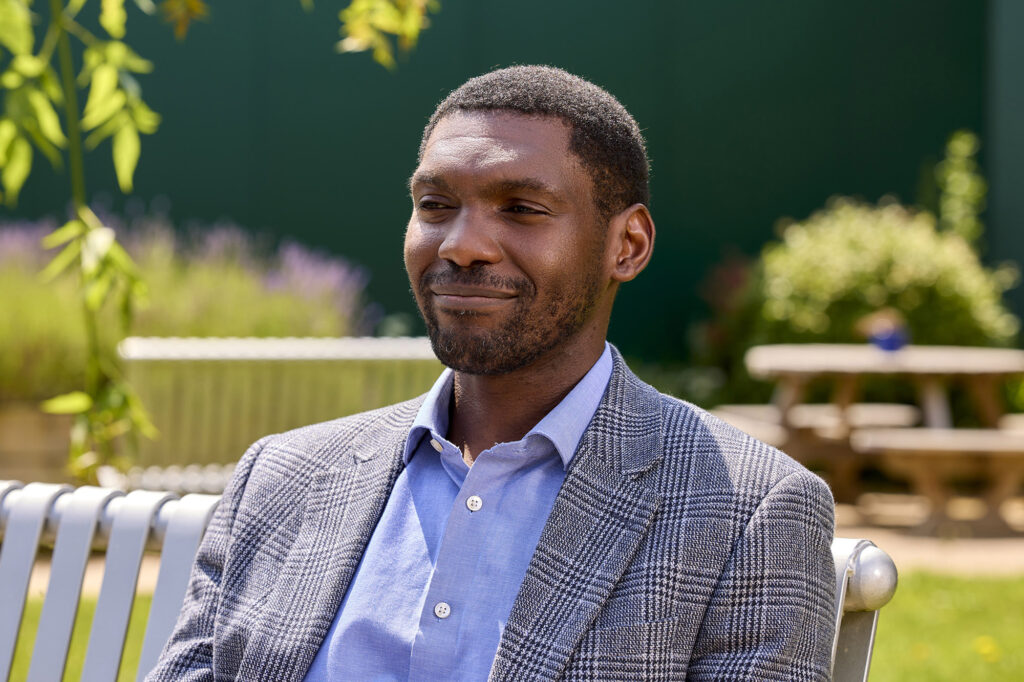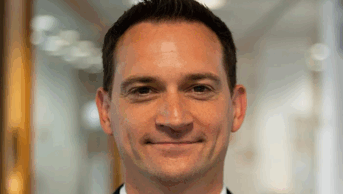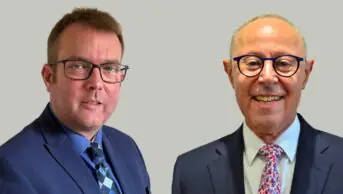
DAVE PHILLIPS / THE PHARMACEUTICAL JOURNAL
Since its launch in 2019, the UK Black Pharmacist Association (UKBPA) has firmly established itself as a voice for change, highlighting the challenges faced by black pharmacists.
The Pharmaceutical Journal spoke with Sam Appiah-Anane, president of the UKBPA, to talk about the association’s work, as well as the sense of community and mutual support that the UKBPA offers.
Currently based in a mental health trust, Appiah-Anane has had a career that spans the pharmacy sector. He explained the way he is bringing his extensive experience to his presidential role and how the UKBPA continues to advocate for every black pharmacist in the UK.
What is your career background and how did you come to be president of the UK Black Pharmacist Association?
I initially got into pharmacy through work experience and curiosity. In secondary school, I spent some time with my aunt and uncle, who had a community pharmacy, and I enjoyed it. From there, I pursued science in school, then went to a pharmacy school. I now work in an NHS mental health trust.
I’ve had a varied career — lots of positive and negative experiences in terms of being black and being a pharmacist. So, when the opportunity came up to become the president of the UKBPA, I thought I would love to be able to contribute. It’s an organisation that I wish existed earlier in my career. So, I thought, if I can have some kind of platform, and I can use that for good, that’s what I want to do. I applied for it and was successful thankfully, and I’ve been president for just over a year now.
In 2024, the UK Black Pharmacist Association’s focus and strategy was around career development and wellbeing support. What is happening in 2025?
This year, it’s more about strengthening our mentoring arm. We don’t want black pharmacists to feel alone in any way — whether that’s through actual physical isolation, such as being the only black person in their department or team, or whether that’s a feeling of isolation or bullying or harassment. They should know they’re not alone. Many of us that have done well in our careers and have come through challenges are also success stories. So, strengthening our mentoring arm is a goal for us.
There’s another piece in terms of awareness. We still come across many pharmacists who haven’t heard of the UKBPA and could possibly be members or mentors.
It’s easy to look at differences, but there’s a lot more — particularly as pharmacists or even on a human level — that we have in common
Regarding the mentoring programme, can you share any examples of how people have reached out for support and received help?
It’s been in multiple ways. There’s word of mouth, which is always a strong testament. People have reached out via conferences that we’ve been to — both mentors and mentees. We have links with student societies too, such as the British Pharmaceutical Students’ Association. Some people have come to me directly who are mentors in other capacities and are aware of our work. So, it’s in a wide range of ways that people have come forward to be mentors or mentees.
We are quite passionate about pharmacists who may be quite senior in their career, or have been a pharmacist for quite a long time, paying it back — helping those who are early on in their careers or new to pharmacy in the UK.
What does the mentoring relationship look like? What kind of things are mentees able to get support with?
There’s a listening ear, there’s formal coaching, preparation for interviews and building confidence. There are also aspirational things, such as helping and encouraging people to aspire to positions or posts that they might not have ordinarily put themselves forward for.
To see themselves in a place at board level — executive level if people want to go private. We have some senior pharmacists who have got into private pharmacy ventures too, which I can see might be scary if you don’t know what’s out there. So, it’s quite wide-ranging.
The UK Black Pharmacist Association reaches out to organisations and other bodies to provide advice and support on what they can be doing. Can you share anything about this?
A recent example is the proposed changes that the General Pharmaceutical Council (GPhC) made regarding international pharmacists.
As a group, we felt there was indirect discrimination in their initial proposals, in terms of some countries having fewer requirements. I met personally with the GPhC’s chief strategy officer, and we lobbied and formally wrote to them as well.
They did listen to our feedback and came back having made it a more standardised process. I know they are still in the process of finalising what that will look like but with the commitment that it would be the same curriculum across the board. This helps to avoid a tiered system of requirements, which we felt was indirectly discriminatory against many potential UK black pharmacists.

DAVE PHILLIPS / THE PHARMACEUTICAL JOURNAL
What challenges do people usually come to you with? Have those changed over time or stayed the same?
We still see people struggling to find mentors and designated prescribing practitioners in their workplace. Bullying and microaggression, harassment — as the NHS staff survey showed — that hasn’t gone away.
I think it would be naive to think that those issues will go away any time soon. We like to educate and shine a light where we can, but there’s very much that’s still present.
The PJ salary survey, published in 2024, found that almost a third of black pharmacists who responded had reported experiencing racism from a colleague in the past year.
With microaggressions, sometimes where I’ve gone back and reflected, there were instances that I didn’t think at the time were bullying or harassment, and when, on reflection, they were. So, we are trying to lower the bar to address these unacceptable behaviours appropriately.
Microaggressions are things that can be called out. There still can be education out of it. It’s something that black pharmacists, or anyone, shouldn’t have to accept as part and parcel of working life.
Earlier in my career, I kind of accepted it without questioning some of the snide jokes or comments or generalisations about groups. We’re more vocal now that it isn’t acceptable — it’s not something we want to be part of normal parlance in pharmacy.
Do you think people are becoming more aware of microaggressions, or is that still something that needs to be worked on?
Both. I think people are becoming more aware, and I’m pleased to have contributed with some of what the Centre for Postgraduate Pharmacy Education is doing in that space and cultural competence.
But yes, I think there’s absolutely more to be done throughout all generations of pharmacists. I experienced it as an early pharmacist, preregistration pharmacist and even in the position that I’m in now, in a deputy director role, I have still experienced it. Now, I have more confidence to address it directly and for people on my team, on their behalf.
But if it’s still happening to me and my colleagues, and colleagues on the UKBPA board, then it’s likely to be happening to most. So, I’d imagine that nearly 30% is probably an underestimate.
What would be your advice to someone who is interested in being more of an ally?
It’s about being curious. We had a slot at the Clinical Pharmacy Congress North in 2024 where we talked about allyship in action. There are no qualifications for it, so I think some people feel they have to have a certain level of knowledge, or a certain background, to be able to relate. I was trying to debunk that myth, in terms of how we should all really be allies for each other, in whichever direction we’re in — whether that’s race, gender or any other protected characteristics.
I think if someone wants to be an ally, just openly reach out and be present. But be wary of stealing the narrative. Something that can happen with allyship, where you want to give a group — in our case, black pharmacists — a voice, but where you almost speak too much for the group. Be aware of that, but be curious, be open and realise that we all do have biases and cultural competence blind spots.
And I don’t think myself, members of the board, others, have everything all sussed. Allyship is very much a collaborative thing. No one has all the answers. You learn from each other. You’ll be surprised how much commonality there is. It’s easy to look at differences, but there’s a lot more — particularly as pharmacists or even on a human level — that we have in common.
I haven’t heard the phrase “stealing the narrative” before. Can you explain it more?
The listening part is essential, on any side. I think what I mean by stealing the narrative is not letting the authentic voice come through. The voice of the particular group ends up being filtered through yourself.
One of the examples that I gave at the Clinical Pharmacy Congress is that I can absolutely support my colleagues through things such as menopause, where it’s not directly applicable or related to me. But I don’t feel like it’s appropriate that I should ever be the poster boy for menopause or the visible face of it. Absolutely, though, I can educate myself, upskill, signpost and listen — have comments on policies.
For me, stealing the narrative would be if I take on and champion it when it’s something where I’m clearly not in that space, in place of someone from the group.
It is important to report problems so they can be addressed, but how can we also highlight the positives?
I think there’s a bit of chicken and egg here, as there are plenty of successful black pharmacists out there.
I guess it’s the confidence to say, “It’s not blowing your own trumpet, it’s celebrating”, and there’s a ripple effect from that celebration. Absolutely do celebrate on our platforms when awards are won, or promotions, things such as that, because they do go on. They are just not as publicised as they could be.
Finally, is there a particular message that you would like to share?
It may be a bit of reiteration, but we really don’t want any black pharmacist to feel alone. I do want to get that across.
There are trailblazers out there, and I hope that there’ll be a world where you don’t have to trailblaze — where you’ll just be you.
We are not there yet, on a lot of levels. But as we’re going there, we’ll continue to represent, and we’ll continue to celebrate.
We are working towards a time and a place where representation in pharmacy is organic and doesn’t require constant corrective action and education.
You may also be interested in

Ngozi Kalu: ‘When research lacks representation, findings become biased and inequalities emerge’

Henry Gregg: ‘The only way to slow down pharmacy closures is to start closing that £2.6bn funding gap’
